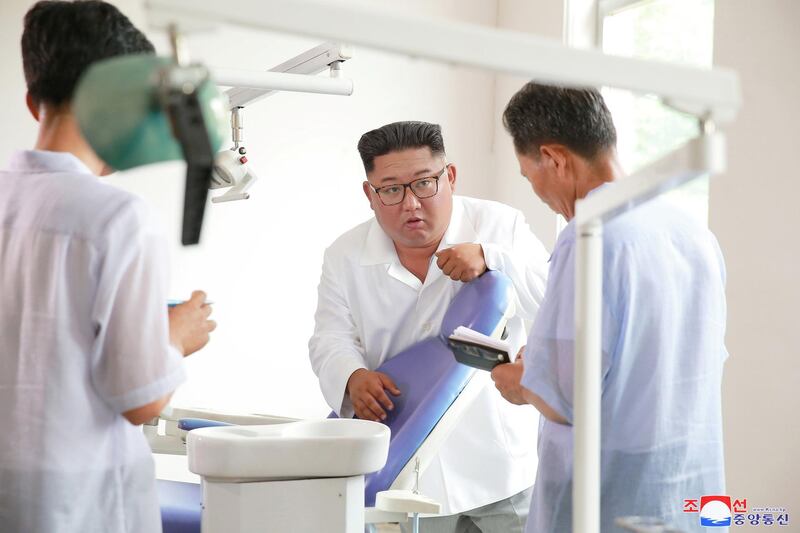North Korean leader Kim Jong Un took aim at his country's health sector, state media reported on Tuesday, the latest salvo of public criticism unleashed as part of his campaign to jumpstart economic development.
Since a June summit with US President Donald Trump in Singapore - where Mr Kim lauded the city-state's economic progress and "world-class" amenities - North Korea's authoritarian leader has been on a blitz of visits to various industrial sites and factories, often criticising sluggish development.
During a visit to the Myohyangsan Medical Appliances Factory in North Phyongan province northeast of the capital Pyongyang, Mr Kim strongly condemned the lack of visible modernisation at the factory, state media outlet KCNA said on Tuesday.
Saying "there is nothing to be proud of in the public health sector," Mr Kim promised personal attention to the work of updating the factory in keeping with the goal to "radically" improve "domestic production, automation and modernisation," KCNA said.
___________
Read more:
North Korea to host Moon as Kim eyes second Trump meeting
Don't trust the US Iran tells North Korea as it slams continued pressure
UN experts report wide-ranging violations by North Korea
__________
In another site inspection to Samjiyon, a northern county near China, the Korean leader criticised poor workmanship on a railway to the border with neighbouring China to be completed next year, calling for even roadbeds, accident-free construction and increased electricity production, according to a KCNA report on Sunday.
After launching a number of ballistic missiles last year - including one believed to be capable of striking anywhere in the United States - Mr Kim has since suspended his testing programmes and embarked on an effort to spur economic development in his politically and economically isolated country.
North Korea argues that its move to end missile and nuclear weapons testing should be acknowledged by easing international sanctions imposed by the United Nations Security Council and a number of countries because of the weapons programmes.
During a recent trip to Wonsan, he said the ongoing construction of a coastal tourist area there represented "an acute standoff with hostile forces trying to stifle the Korean people through brigandish sanctions and blockade," describing the construction as "a do-or-die struggle" in "such a difficult time as now," KCNA reported last week.
To press North Korea to give up its nuclear and missile programmes, the UN Security Council banned North Korea's sale of coal, iron, iron ore, lead, lead ore and seafood in a bid to slash by a third the country's $3 billion (Dh11 billion) annual export incomes, while capping imports of crude oil and refined petroleum products.
The United States, which has led the sanctions campaign, has also stepped up its own sanctions on North Korea, and says it won't ease pressure until North Korea gives up its nuclear weapons.





